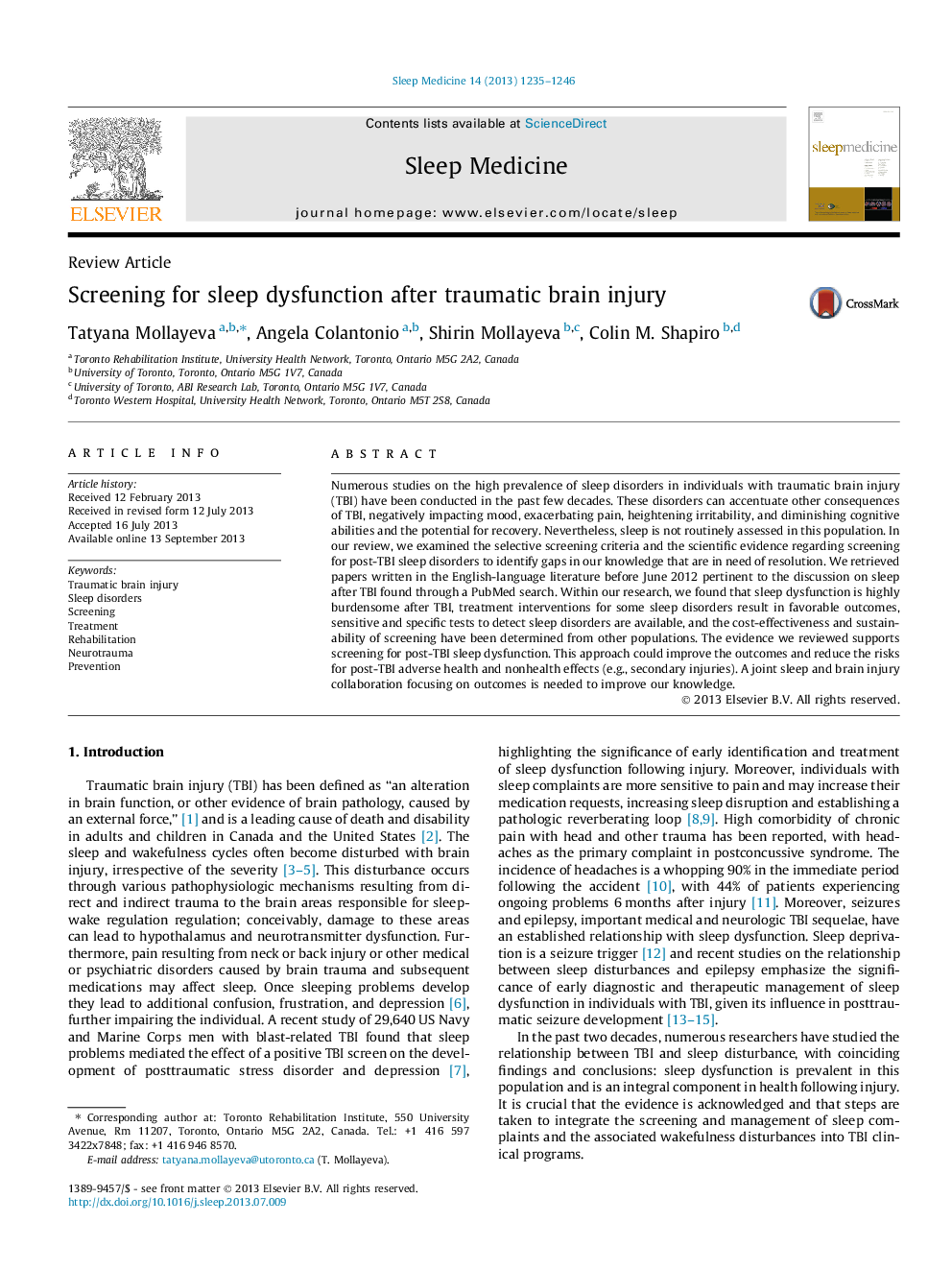| Article ID | Journal | Published Year | Pages | File Type |
|---|---|---|---|---|
| 6061010 | Sleep Medicine | 2013 | 12 Pages |
Abstract
Numerous studies on the high prevalence of sleep disorders in individuals with traumatic brain injury (TBI) have been conducted in the past few decades. These disorders can accentuate other consequences of TBI, negatively impacting mood, exacerbating pain, heightening irritability, and diminishing cognitive abilities and the potential for recovery. Nevertheless, sleep is not routinely assessed in this population. In our review, we examined the selective screening criteria and the scientific evidence regarding screening for post-TBI sleep disorders to identify gaps in our knowledge that are in need of resolution. We retrieved papers written in the English-language literature before June 2012 pertinent to the discussion on sleep after TBI found through a PubMed search. Within our research, we found that sleep dysfunction is highly burdensome after TBI, treatment interventions for some sleep disorders result in favorable outcomes, sensitive and specific tests to detect sleep disorders are available, and the cost-effectiveness and sustainability of screening have been determined from other populations. The evidence we reviewed supports screening for post-TBI sleep dysfunction. This approach could improve the outcomes and reduce the risks for post-TBI adverse health and nonhealth effects (e.g., secondary injuries). A joint sleep and brain injury collaboration focusing on outcomes is needed to improve our knowledge.
Related Topics
Life Sciences
Neuroscience
Neurology
Authors
Tatyana Mollayeva, Angela Colantonio, Shirin Mollayeva, Colin M. Shapiro,
